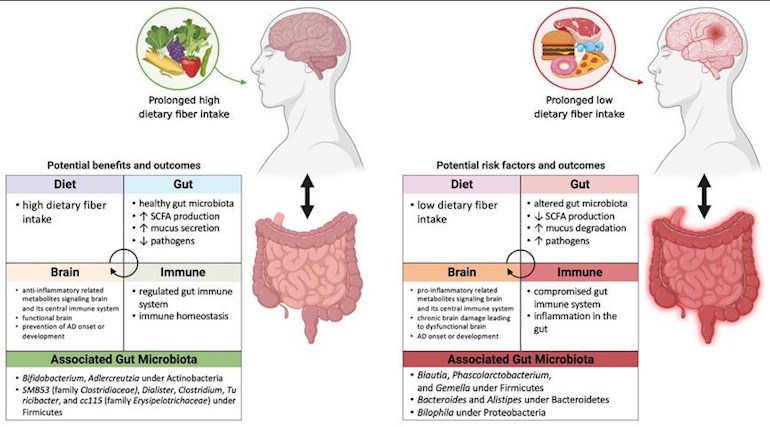The Potential Utility of Prebiotics to Modulate Alzheimer’s Disease: A Review of the Evidence 2021 mdpi.com/2076-2607/9/11/231...
6. Concluding Remarks
Although human clinical studies examining the effects of specific prebiotics on gut microbiome-mediated cognitive health outcomes in AD patients are lacking, there is mounting evidence that prebiotics have the potential to be a viable approach for ameliorating symptoms associated with AD. Promoting the growth and activity of beneficial, SCFA-producing microbes such as bifidobacteria is emerging as a clear therapeutic target for improving gut barrier function, decreasing inflammation, and improving cognitive and behavioral outcomes. A variety of prebiotic types, particularly fructans, have been found to be effective in modulating gut microbiome composition and microbial metabolite production, and modifying health outcomes relevant for individuals with AD. More research is needed to determine which prebiotics, at what dosages, and in which context (e.g., on what dietary background, in combination with specific probiotics, at what frequency, etc.) are the most effective for not only decreasing AD-associated symptoms such as anxiety and depression, but also potentially improving cognition or preventing the loss of cognitive function in individuals at risk for AD. Further mechanistic research to determine how changes in the gut microbiome related to prebiotic supplementation alter neuroinflammatory signaling are also needed so that targeted, effective, potentially personalized therapies can be developed to treat and prevent the progression of neurodegenerative processes in AD.
